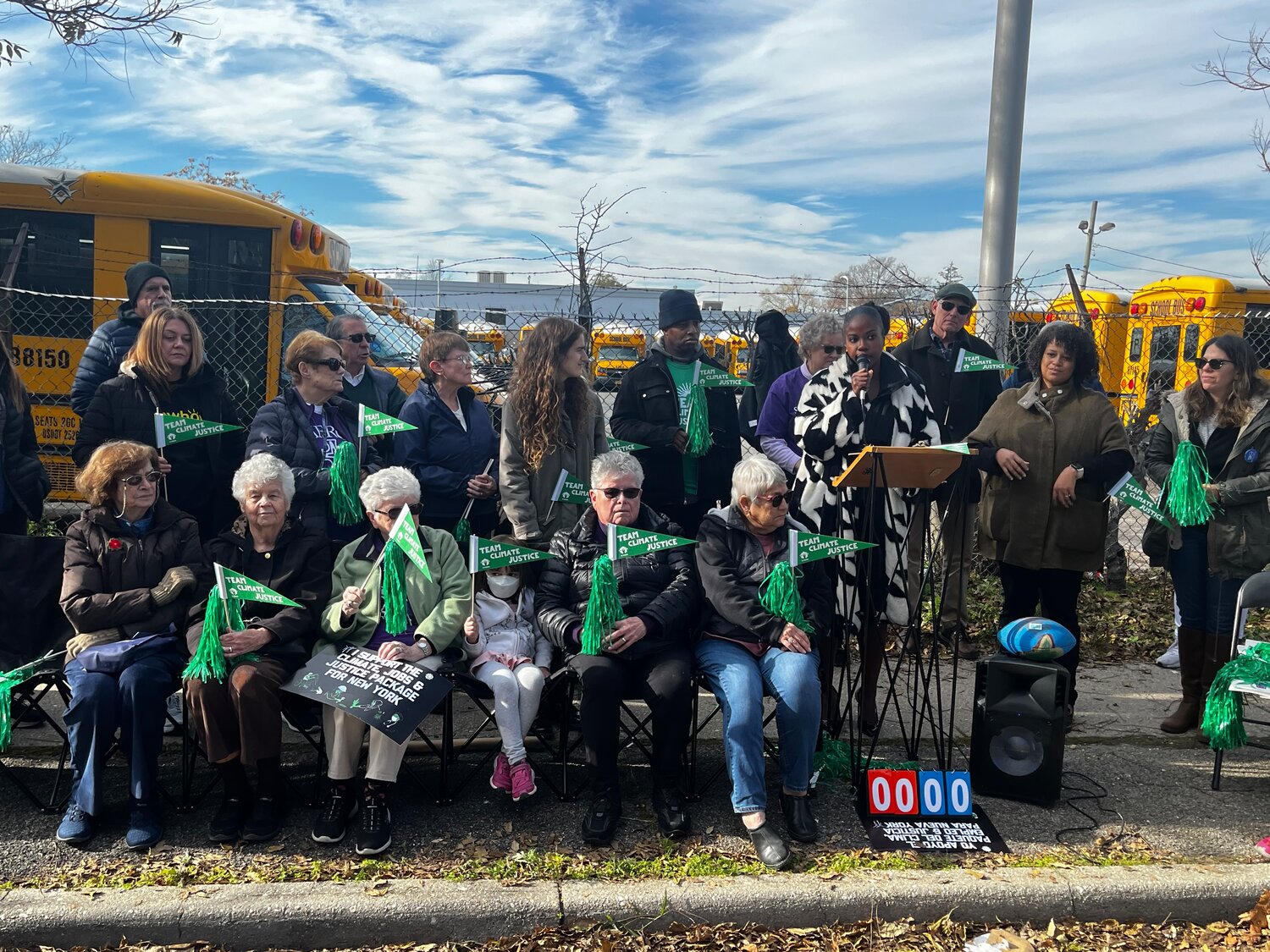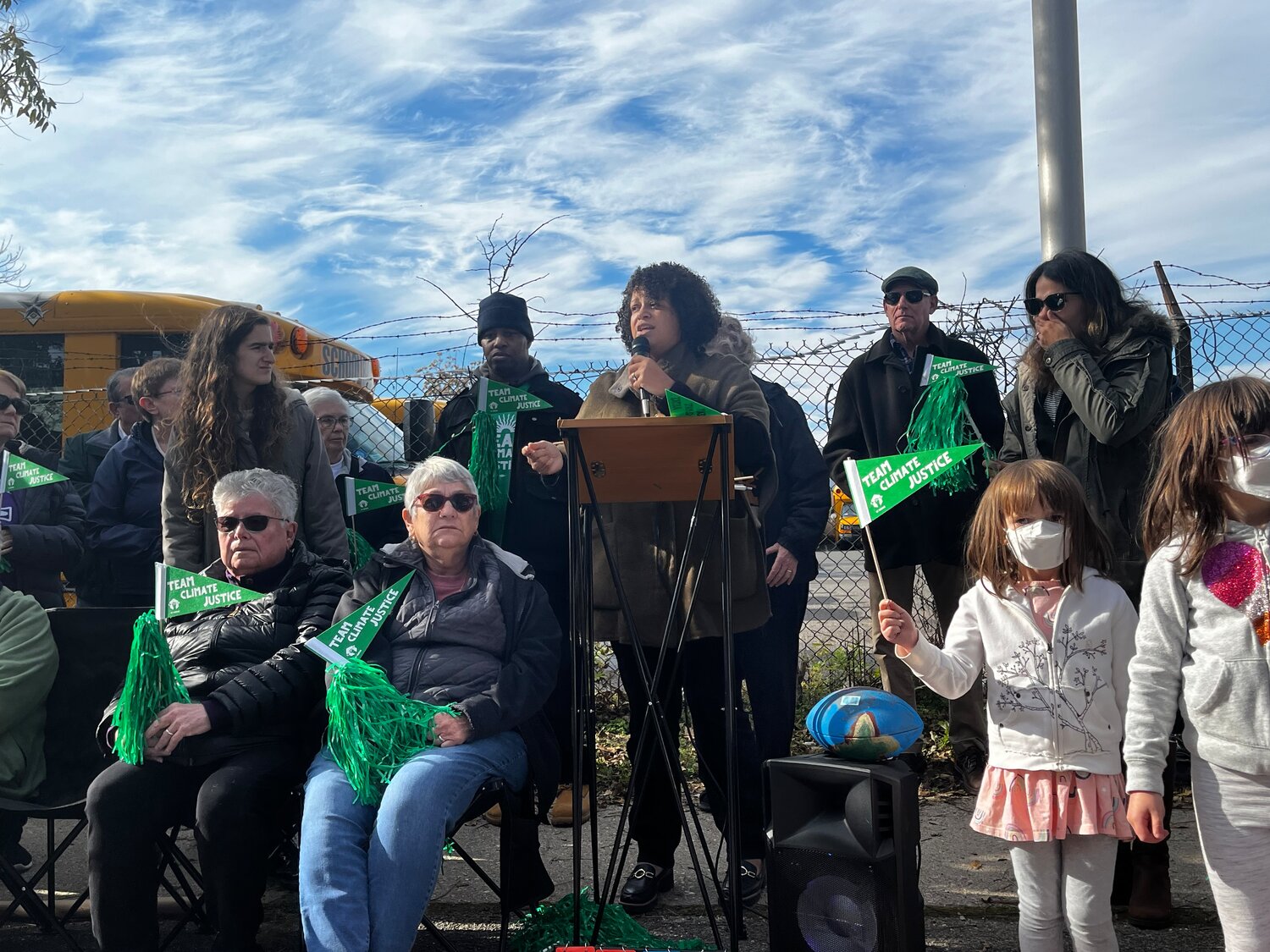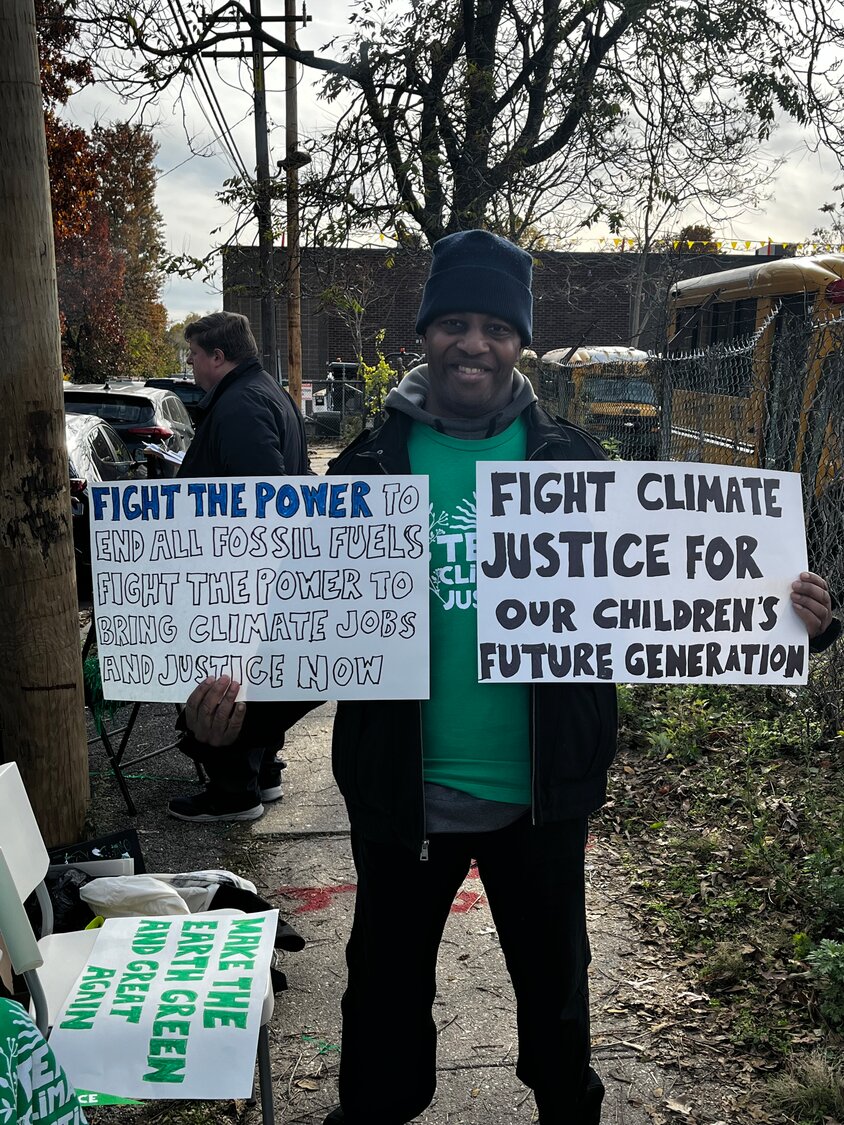The intersection of two crises
Residents of Uniondale and Hempstead rally for their future
Posted
We’re in the midst of a global climate crisis — that is no secret.
But for residents of Uniondale, who find themselves at the intersection of both an economic and climate crisis, it's more than just a harsh reality hitting home.
Unfortunately, this community is not unique in its struggles. Many other neighborhoods are similarly affected by what Joe Sackman, a former candidate for state assemblyman and activist for the Long Island Progressive Coalition, says are the continued effects of systemic racism and environmental injustice.
Sackman and the coalition — along with an alliance of nearly 400 other organizations from across the state known as NY Renews — are calling for Gov. Kathy Hochul to become the metaphorical crossing guard of this intersection and ensure that the path forward is one of equity and justice by passing the Climate, Jobs, and Justice package — a legislative three-pack of bills, now awaiting votes in the Assembly, aimed at creating “climate justice.”
“I stand with the Long Island Progressive Coalition and the Climate Jobs and Justice package as we fight for a brighter future for New York State. With the NY Renews coalition leading the way, we are pushing for transformative legislation that will kickstart our clean energy transition and implement the Climate Act,” said Assemblywoman Taylor Darling, who represents Uniondale.
Assemblywoman Michaelle Solages, who chairs the state’s Black, Puerto Rican, Hispanic and Asian Legislative Caucus, added, “We are at the brunt of the climate crisis — whether it’s rising sea levels, the increased cost of utilities, the cost of the energy transition, and even the quality of our water. I can sit here all day talking about the issues affecting our communities, but I don’t want to talk anymore — I want solutions and funding implemented in our communities, especially the most disadvantaged ones.”
The comprehensive package of bills includes the NY HEAT Act, which would ensure that gas utilities align with emission-reduction goals; the Climate Change Superfund Act, which would hold major oil companies responsible for pollution costs by forcing them to pay into a superfund controlled by the state; and the Just Energy Transition Act, which outlines a plan to replace fossil fuel facilities by 2030.
“The NY HEAT Act will align gas utilities with emission reduction and climate justice mandates, ensuring a just transition for all. The Climate Change Superfund Act holds major oil companies accountable for the harm they've caused, making them pay for their pollution. And the Just Energy Transition Act provides a clear plan to guide the replacement and redevelopment of fossil fuel facilities by 2030,” Darling explained of the bills in her own words.
“We have to make the polluters pay for what they did to our region, and make them help pay for this transition,” Solages added, “folks who are financially disadvantaged are not thinking about the energy transition because they're in survival mode just trying to live their everyday life. We have an affordability crisis and these bills and funding will be used to help people transition, that is why it is so important for Governor Hochul and the entire legislature to put forth these initiatives and make sure these communities are protected.”
Additionally, NY Renews and sponsors of the Climate, Jobs, and Justice package are urging Hochul to allocate at least $1 billion for the Climate Action Fund, which is currently empty. The fund was created in 2019 as part of the passage of the Climate Leadership and Community Protection Act — which requires the state to reduce greenhouse gas emissions by 40 percent by 2030, and 85 percent by 2050, with the remaining 15 percent of emissions to be offset by planting trees and other similar decarbonization tactics.
“We cannot stop there,” said Darling about the package,“this money is needed so that we can fund critical climate, transportation, housing, and energy programs that are developed by communities, for communities.”
Through the People's Climate Justice Budget, this $1 billion plan would kickstart initiatives like a $75 million investment towards a transition from diesel to electric school buses state-wide.
“The people's climate justice budget is not a ‘one size fits all’ plan,” Sackman explained, “the people's climate justice budget recognizes the disadvantaged communities have far too often suffered more than others, and we seek to rectify that imbalance with equitable funding,” said Sackman.
“This budget includes vital resources for developing community-led transition plans that reduce local pollution and direct grant programs to advance local climate initiatives,” added David Osorio, a community organizer with the Long Island Progressive Coalition, “communities like Hempstead and Uniondale deserve these investments to kickstart a pollution-free, resilient climate future built with good union jobs to ensure a healthy, livable place for generations to come.”
According to Jerry Rivers, an environmental scientist for the North American Climate, Conservation Environment (NACCE) in Roosevelt, if something doesn’t drastically change soon, Long Island may be uninhabitable within the next two decades. Rivers explained that the Island is in the perfect position for climate disaster, due to poor infrastructure, changing weather patterns, rising sea levels, and more frequent extreme weather events.
“Long Island is on the front lines of climate change, and there is no end in sight,” he said. “We need to get the politicians to pass these bills and invest in the Climate Action Fund because the situation is getting worse and worse every single day.”
County Legislator Siela Bynoe, who represents Uniondale, declined to comment on whether she would support the legislative package and budget proposal. If the bills are passed by the Assembly, they would reach Hochul’s desk next year.
Report an inappropriate comment
Comments

 43.0°,
Partly Cloudy
43.0°,
Partly Cloudy 









